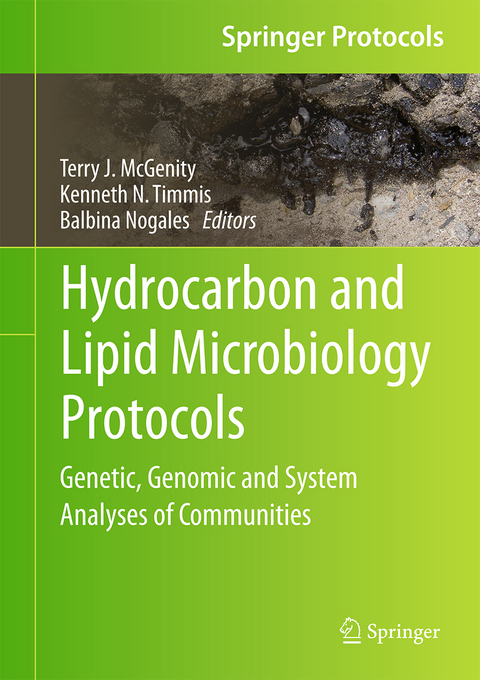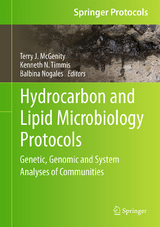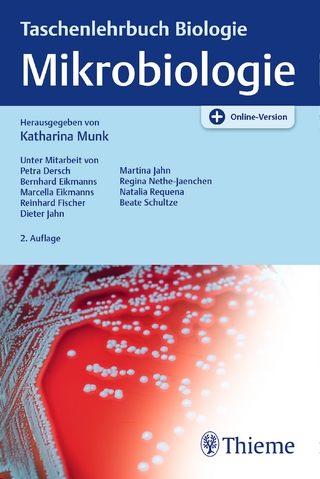Hydrocarbon and Lipid Microbiology Protocols
Springer Berlin (Verlag)
978-3-662-50449-9 (ISBN)
Hydrocarbon and Lipid Microbiology ProtocolsThere are tens of thousands of structurally different hydrocarbons, hydrocarbon derivatives and lipids, and a wide array of these molecules are required for cells to function. The global hydrocarbon cycle, which is largely driven by microorganisms, has a major impact on our environment and climate. Microbes are responsible for cleaning up the environmental pollution caused by the exploitation of hydrocarbon reservoirs and will also be pivotal in reducing our reliance on fossil fuels by providing biofuels, plastics and industrial chemicals. Gaining an understanding of the relevant functions of the wide range of microbes that produce, consume and modify hydrocarbons and related compounds will be key to responding to these challenges. This comprehensive collection of current and emerging protocols will facilitate acquisition of this understanding and exploitation of useful activities of such microbes.
Introduction to genetic, genomic and system analyses for communities.- Genomic analysis of pure cultures and communities.- Protocols for metagenomic library generation and analysis in petroleum hydrocarbon microbe systems.- Preparation and analysis of metatranscriptomic libraries in petroleum hydrocarbon microbe systems.- Prokaryotic metatranscriptomics.- Defining a pipeline for metaproteomic analyses.- Generating enriched metagenomes from active microorganisms with DNA stable isotope probing.- DNA and RNA-based stable isotope probing of hydrocarbon degraders.- Protein stable isotope probing (Protein-SIP).- Protein extraction from contaminated soils and sediments.- Analysis of the regulation of the rate of hydrocarbon and nutrient flow through microbial communities.- Physiological modelling of complex bacterial communities.- Protocol for evaluating the permissiveness of bacterial communities towards conjugal plasmids by quantification and isolation of transconjugants.
| Erscheinungsdatum | 24.01.2017 |
|---|---|
| Reihe/Serie | Springer Protocols Handbooks |
| Zusatzinfo | X, 288 p. 50 illus., 30 illus. in color. |
| Verlagsort | Berlin |
| Sprache | englisch |
| Maße | 178 x 254 mm |
| Themenwelt | Naturwissenschaften ► Biologie ► Mikrobiologie / Immunologie |
| Technik ► Umwelttechnik / Biotechnologie | |
| Schlagworte | biochemical engineering • Biomedical and Life Sciences • Hydrocarbon degraders • Metagenomic library generation • Metaproteomic analyses • Metatranscriptomics • Microbiology • Protein stable isotope probing (Protein-SIP) |
| ISBN-10 | 3-662-50449-9 / 3662504499 |
| ISBN-13 | 978-3-662-50449-9 / 9783662504499 |
| Zustand | Neuware |
| Haben Sie eine Frage zum Produkt? |
aus dem Bereich




